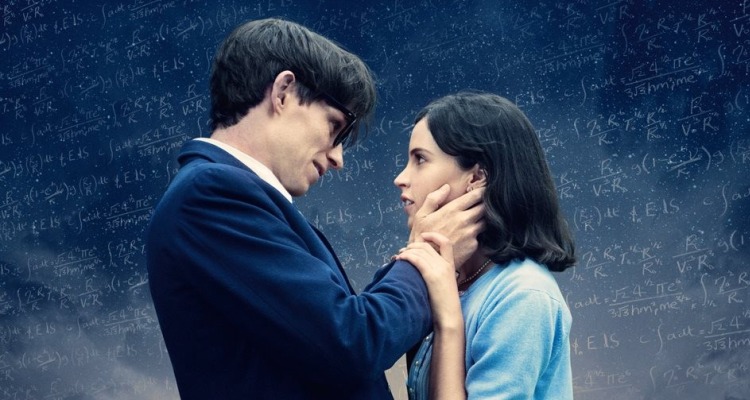 (3 / 5)
(3 / 5)
James Marsh’s new film, a biopic of legendary astrophysicist Stephen Hawking and his first wife Jane Wilde, is firstly a very traditionally British film; which is to say, a very reserved one.
In the face of tragedy – the gradual debilitation of a vibrant person – there’s nary a tear shed. But how does The Theory of Everything operate as an examination of a great mind, and some very human failings?
Following the passage of Hawking and Wilde’s relationship from idealistic Cambridge post-grads in the 1960s through to his becoming a Companion of Honor in 1989, the film lives and dies on its two leads and how they are able to capture the maturing and deteriorating relationship between the pivotal couple. Luckily Eddie Redmayne and Felicity Jones are more than up to the task.
Redmayne’s performance is one that invites adjectives: wry, gawky, charismatic, charming. After being diagnosed with ALS, we watch his body slowly close in on itself; his limbs dragging, his speech slurring. Theory of Everything is most affecting in those moments that we, with Hawking, observe those around him, as the act of simply feeding oneself at dinner becomes an impossible mountain to climb.
Jones, meanwhile, shines in the role of the devoted wife forgotten in the shadow of an increasingly closed-off husband. The film documents her transition from wan but passionate young woman to a wife and mother whose life is resigned to guilt and quiet resentment. An emotional entanglement with mild-mannered choirmaster Jonathan (Charlie Cox) teeters on the edge of a full-blown affair.
Aided by Benoît Delhomme’s softly luminous cinematography and Jóhann Jóhannsson’s uplifting piano score, Theory of Everything is a moving film but only gently so. Frustratingly, it denies us an insight into Hawking’s work beyond the broadest strokes – no A Beautiful Mind-like illustrations here – and, as a man defined by his work, keeps us removed from his inner workings, his brilliance.
Despite its award-worthy performances and effervescent craftsmanship, the film feels too generic, too much like a Sunday evening drama. To employ a very British analogy, there’s simply too much domestic milk in the cosmic brew; in avoiding the mathematics, The Theory of Everything ironically ends up being too by-the-numbers. The film may soar but it does not always carry us with it.
